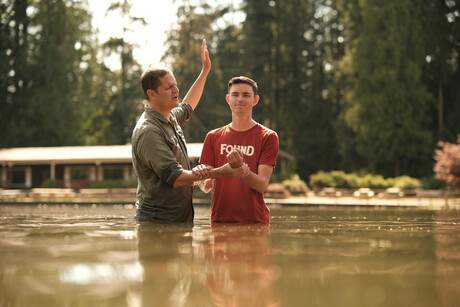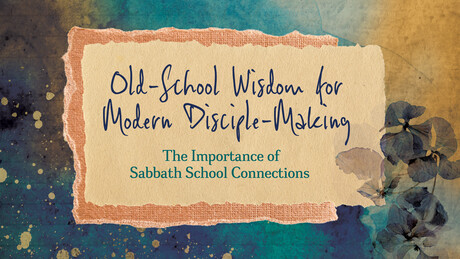Labor unions were once an anathema to most Adventists. Many members did not view union membership as an option, citing significant counsel from Ellen White and other sources. At one point, Ellen White described the practices of labor unions: “Unionism has revealed what it is by the spirit that it has manifested. It is controlled by the cruel power of Satan. Those who refuse to join the unions formed are made to feel this power. The principles governing the forming of these unions seem innocent, but men have to pledge themselves to serve the interests of these unions, or else they may have to pay the penalty of refusal with their lives”—Manuscript Releases, vol.4, p.75.
But today, some are asking questions: Is that counsel still valid? Do labor unions really pose a threat to liberty of conscience in the workplace? And, if so, what should Adventist workers do in relating to the requirements of their own employment?
One member, we’ll call her Cathy, had worked for some time as a nurse at her city’s local medical center when the staff voted to bring in a labor union. While still pondering her choices in this situation, Cathy received what she perceived as a threatening letter stating that she would be terminated if she didn’t join the union within 60 days. When Cathy called the union representatives to clarify their position, she was told that it was too late for her to apply for a religious exemption from membership. That is when Cathy called the North Pacific Union Conference’s Office of Public Affairs and Religious Liberty (PARL) for some assistance. Once a PARL representative spoke to the manager of the local union and supplied the correct forms and explanation, Cathy was exempted from membership and was able to keep her job at the medical center. In this case, the situation turned out positive, and another member was able to work according to her own conscience.
Church’s Position
The Seventh-day Adventist Church has traditionally discouraged its members from taking on membership in a labor union. Members have been encouraged instead to arrange with the union to be exempted from membership and to donate an amount equal to the required union dues and fees to a non-union, non-religious charity.
Is What You See What You Get?
On the face, today’s labor unions seem harmless enough. Activity at the most basic level of a union is usually quite benign. Many members have not seen any physical violence in their locals. Most members feel they have at least some voice in molding the future of their workplace. And, more important to employees, most believe their wage level and benefits would not be as generous if the employees were left to do their own workplace bargaining.
Let’s face it. Some who have championed the traditional Adventist position have failed to give credit where it is due. Labor unions have been instrumental in pushing through some positive changes for American workplaces. Although numbers are difficult to find, many Adventists currently work as full-fledged union members. In fact, the majority of Adventists who phone PARL with questions about labor union membership see nothing wrong with the union at their workplace. So what’s the big deal?
Two Concerns
The traditional church position is based on principles that remain valid guidelines for Adventists who confront this issue in their own workplaces. Following are two problematic principles about labor unions—concerns that Adventists should not glibly dismiss as they determine their own position.
Principle 1: Loss of free will.
When you join a labor union, your choice about employment matters is given over to the union. Your dues and fees may help support an abortion lobby or fund a walkout or strike at your job. While obviously it is important that an Adventist employee should work positively as a team member, the Bible teaches us to avoid yoking with unbelievers in any way that compromises our own ability to act according to conscience. Is it wise for a Christian employee to let union bosses take over what should be his or her own responsibility for getting along with fellow employees, speaking up for unfair practices and setting a proper work ethic?
While the collective bargaining agreement intends to foster order, efficiency and fair pay for employees, it still allows procedures that may work against the conscience of the Christian.
Principle 2: Support of unchristian methods.
The same root problem exists in 2003 as in earlier days. Labor unions are still notorious for using strong-arm methods to force compliance or otherwise get their way. Union members and supporters are sometimes swept into conflict against former friends and colleagues. The resulting class conflict and violence has at times deprived people of earning a livelihood unless they joined the union, labeling them “scabs” or “rats” if they differed. Adventists calling PARL for assistance have mentioned abuse such as general harassment, verbal isolation, tire slashing, destruction of products in the management’s store, threats of physical violence on those who choose of their own volition to cross picket lines, and, yes, threats to a person’s life. Union dues, officially or unofficially, support all of this.
Guaranteed Exemption
In order to create closed shops* in which union membership is a condition of employment, legislation has mandated a guaranteed exemption for any employee who has religious or ethical scruples against becoming a member. Those employees must be treated the same as other employees according to the collective bargaining agreement between their employer and the union. So Adventists and other employees can receive positive benefits of this agreement while legitimately opting out of union membership and any entanglements with its negative side.
The Bottom Line
So how should an Adventist member relate to labor unions? The choices and the issues all revolve around individual conscience, yet the church will continue to caution its members about labor union membership. The Office of Public Affairs and Religious Liberty exists partly to assist to those who sense personal conflicts between God’s plan of conscientious choice and labor union policies and actions.
Labor unions may often promote positive changes in the American workplace. But they will also continue to create challenges for employees and employers, including church-related institutions, who desire to maintain independent choice. The concerns echoed in Ellen White’s counsel still exist. The principles of religious liberty and freedom of conscience are ones that no institution or union has the right to change.
*Idaho is the only right-to-work state in the North Pacific Union Conference. To be a right-to-work state means all labor unions in that state must have an “open shop” in which employees may choose whether or not to belong to the union.











